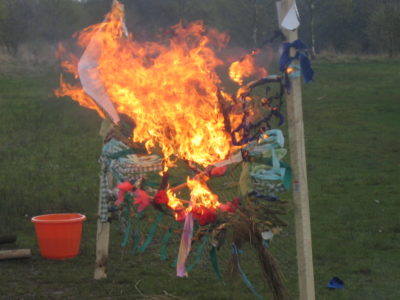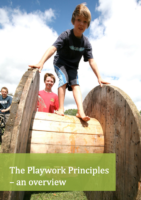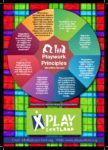
Playwork is “the specific act of affecting the whole environment with the deliberate intention of improving opportunities for play.”
Dr Fraser Brown, Professor of Playwork
What Are the Playwork Principles?
The Playwork Principles are a set of guidelines that establish the professional and ethical framework for playwork and underpin best practice in playwork. They help ensure that children’s play is supported in a way that respects their needs, choices, and rights. Developed by playworkers and experts in child development, these principles emphasise the importance of play as a fundamental part of childhood.
The principles are based on the recognition that children and young people’s capacity for positive development will be enhanced if given access to the broadest range of environments and play opportunities.
These principles are not just for playworkers—they can be used by anyone who supports children’s play, including teachers, childcare providers, parents, community groups, and policymakers. By applying these principles, we can create environments where children feel free to explore, take risks, and develop essential life skills through play.
Playwork Principles
- All children and young people need to play. The impulse to play is innate. Play is a biological, psychological and social necessity, and is fundamental to the healthy development and wellbeing of individuals and communities.
- Play is a process that is freely chosen, personally directed and intrinsically motivated. That is, children and young people determine and control the content and intent of their play, by following their own instincts, ideas and interests, in their own way for their own reasons.
- The prime focus and essence of playwork is to support and facilitate the play process and this should inform the development of play policy, strategy, training and education.
- For playworkers, the play process takes precedence and playworkers act as advocates for play when engaging with adult led agendas.
- The role of the playworker is to support all children and young people in the creation of a space in which they can play.
- The playworker’s response to children and young people playing is based on a sound up to date knowledge of the play process, and reflective practice.
- Playworkers recognise their own impact on the play space and also the impact of children and young people’s play on the playworker.
- Playworkers choose an intervention style that enables children and young people to extend their play. All playworker intervention must balance risk with the developmental benefit and well being of children.
Who Can Use the Playwork Principles?
While these principles were originally developed for professional playworkers, they can be used by anyone who supports children’s play, including:
-
Parents and caregivers – Understanding the importance of free play at home and in the community.
-
Teachers and educators – Encouraging play-based learning and unstructured play opportunities.
-
Childcare providers – Creating environments that allow children to engage in self-directed play.
-
Community and youth workers – Supporting play in public spaces, parks, and community programs.
-
Policymakers and urban planners – Designing child-friendly environments that promote play.
By adopting these principles, we can all contribute to a society where children’s play is valued, protected, and nurtured.






